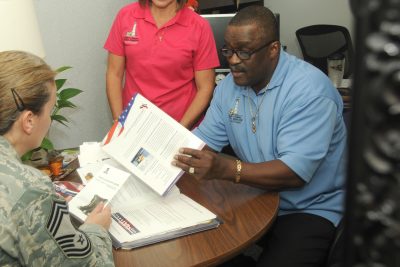Update as of December 3, 2019:
Can you use your current ID to gain access to a military installation, under the Real ID Law? The Department of Homeland Security (DHS) has been phasing in this law’s requirements, and almost every state is in the process of issuing new, compliant driver’s licenses and IDs. The DHS website states”DHS is working closely with all states and territories to provide assistance and guidance to achieve full compliance by the October 1, 2020 deadline. As of September 5, 2019, 50 states and territories are fully compliant with the REAL ID requirements, and all states are on track to begin issuing compliant licenses and IDs by the October 1, 2020 deadline.”
Regarding military installations, the DHS website states “The U.S. Department of Defense (DoD) recently finalized an update to its DoD-wide installation security policy and is in the process of no longer accepting noncompliant marked cards across all of its facilities and installations. However, DoD will continue to accept state-issued noncompliant unmarked “legacy” cards until the October 1, 2020 deadline.”
If you think you might still be using a current, non-compliant ID after October 1, 2020, due to your state’s rollout schedule for the new, compliant IDs, you should know that other types of documents can be used for installation access. Contact the installation you wish to access to find out what IDs are currently accepted-installation command have the discretion to consider other, supplemental forms of identification. You may also accompany someone with a valid military ID card.
DHS’s REAL ID FAQs page can answer many of your questions about the REAL ID law and how it will impact activities such as installation access and commercial air travel.
You can find out more about your state’s process to issue REAL ID-compliant licenses and IDs through the main DHS REAL ID webpage.

